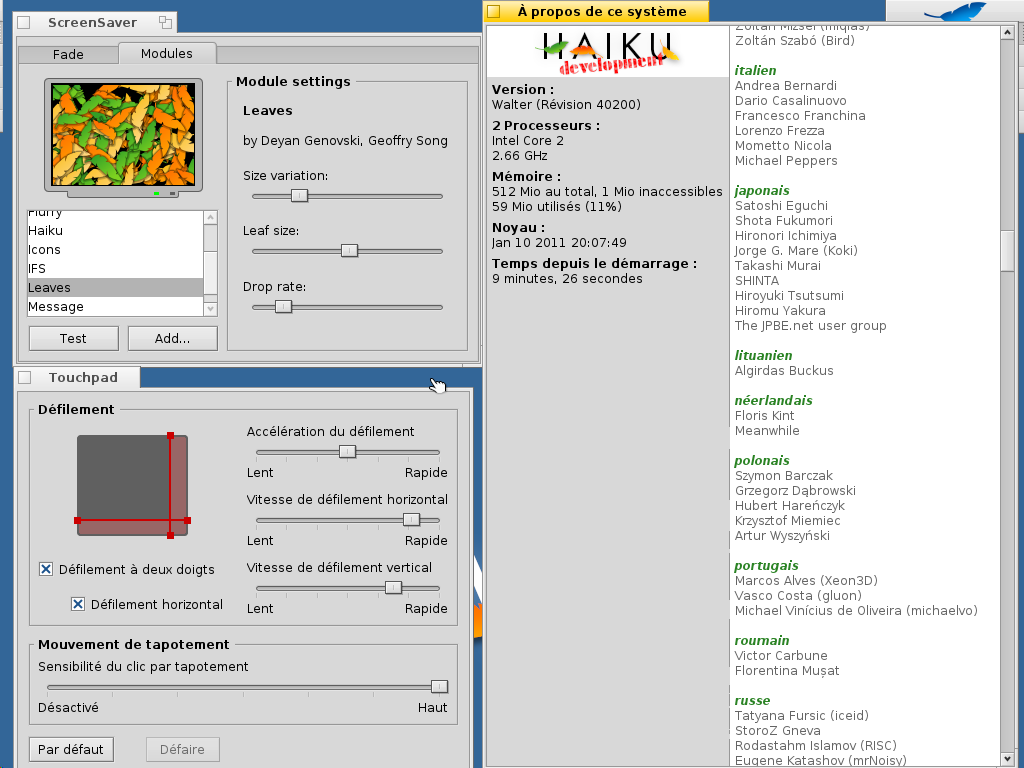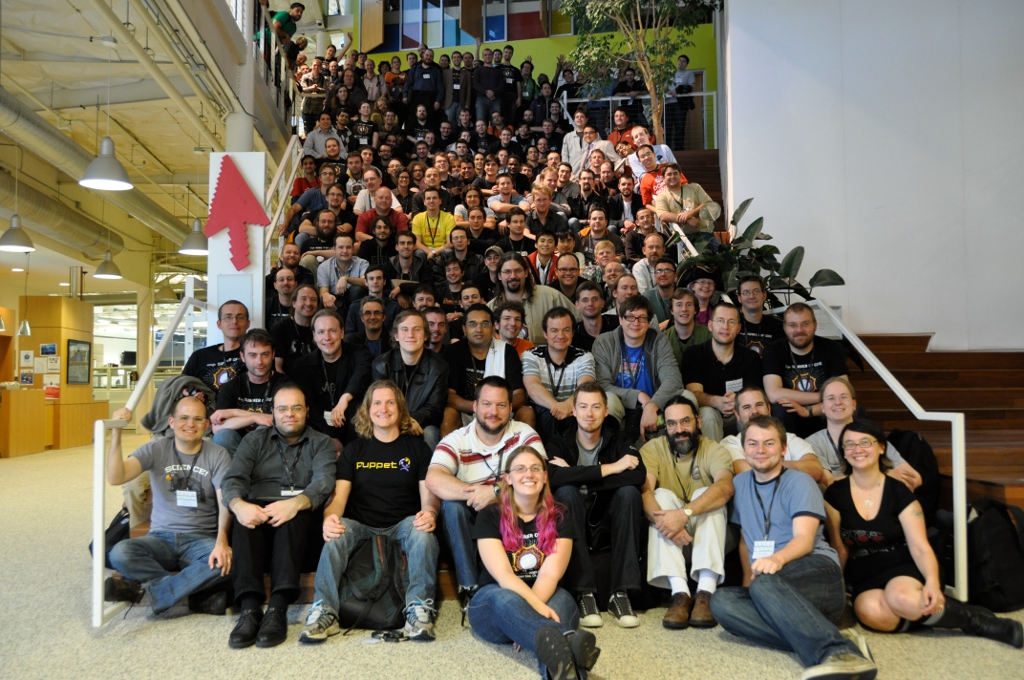The GSoC Mentor Summit this year happened to be the weekend before BeGeistert, which allowed Matt Madia to make it to both events. This time Haiku had four mentors make the trip. Jérôme Deval flew in from Paris, Philippe Saint-Pierre traveled in from Quebec, Matt joined us from New Jersey, and I drove down from just north of the Golden Gate Bridge. Google allows two mentors per org, plus a third if the org participated in Google Code-In last year.
The Google Code In is now over. I’d like to thank all of the students, and the Haiku mentors, 30 in all, for all their hard work. I’d also like to thank Google, the Melange team and Carol Smith for running GCI. Haiku had over 150 tasks completed by students!
Many of the tasks completed for Haiku were for translations. In all, there were about 65 translation tasks completed, nearly completing 12 different languages, and partial coverage on 7 more. One student, when we couldn’t find a mentor to cover the Romanian translations, went out and found a mentor, and then she proceeded to translate all of the apps and preflets that are in HTA, all while she was also doing tasks for several other orgs. In case anyone is interested in working on the translations there is still a lot of work left to do on some of the less common languages. If you are interested in helping out, join the Haiku-i18n mailing list. To work on the localization of the system, go to HTA, register and get started. To start a new translation team for the user guide, read Starting a new translation.

Haiku get's a couple of new screensavers, several new translators for many languages, and some more i18n'd applications and preferences thanks to GCI students.
This year’s Google Summer of Code Mentor Summit again fell on the same weekend as BeGeistert. This year Niels was able to make the trip. Niels and I attended the summit representing Haiku. We attended some of the same sessions but split up for others. As was the case last year we met a lot of developers from the other orgs, some I had met either at last years summit or other open source events. I talked with the VLC, FFMpeg and BeagleBoard guys on Friday night. One (or more) of the beagleboard.org guys works for TI in Community Development, and was exited to hear that Haiku was working on an Arm port and suggested he may be able to hook us up with Free Hardware. We may just have to cover the taxes to get such hardware to a developer in Europe is all. I have contacted him and will post an update on this when we get a response.

Here’s the group picture. click to see larger view
Google held the 2009 Google Summer of Code Mentor Summit meeting Oct 24-25, 2009. Since many of the Haiku mentors were busy attending BeGeistert and others were tied up with other events like the Florida Linux Show, I ended up being the only Haiku mentor to attend this year. The weekend was filled with many sessions and lots of hallway time. I managed to meet many mentors from the other projects and many had heard of Haiku and many had even tried out the Alpha.





